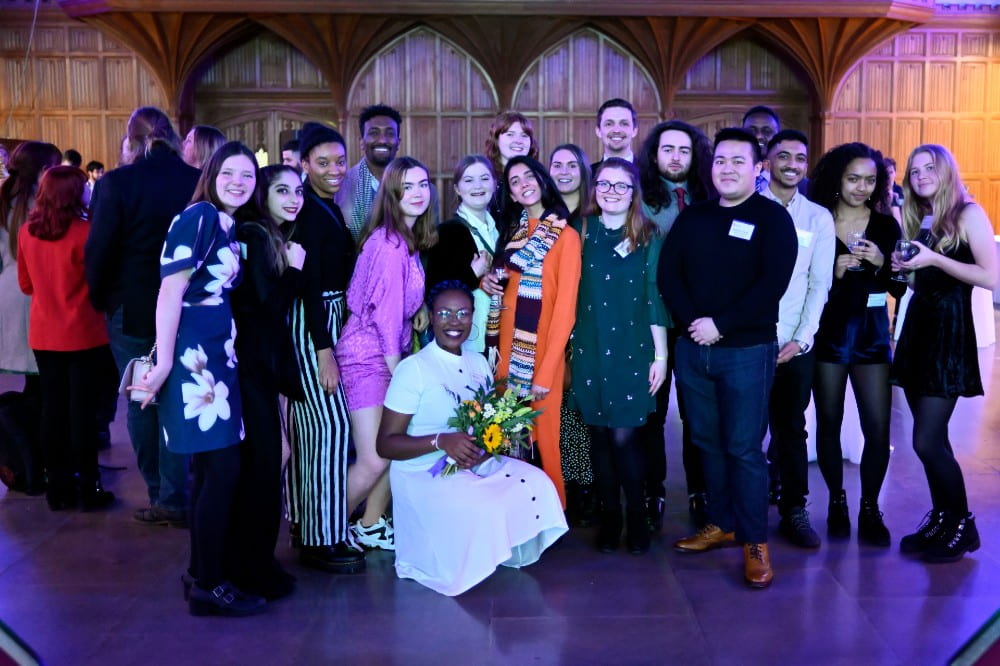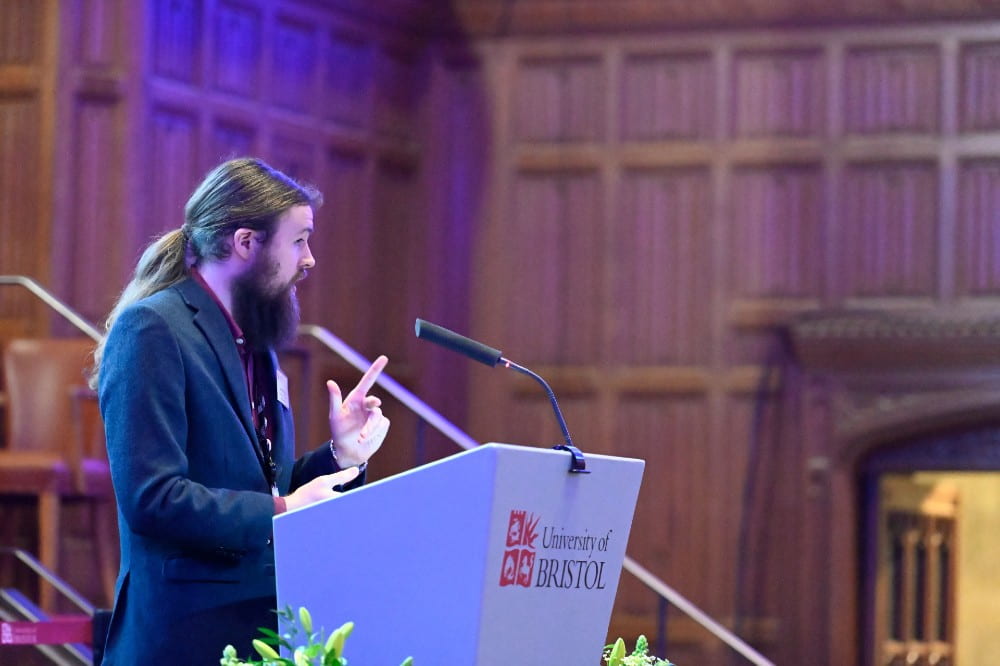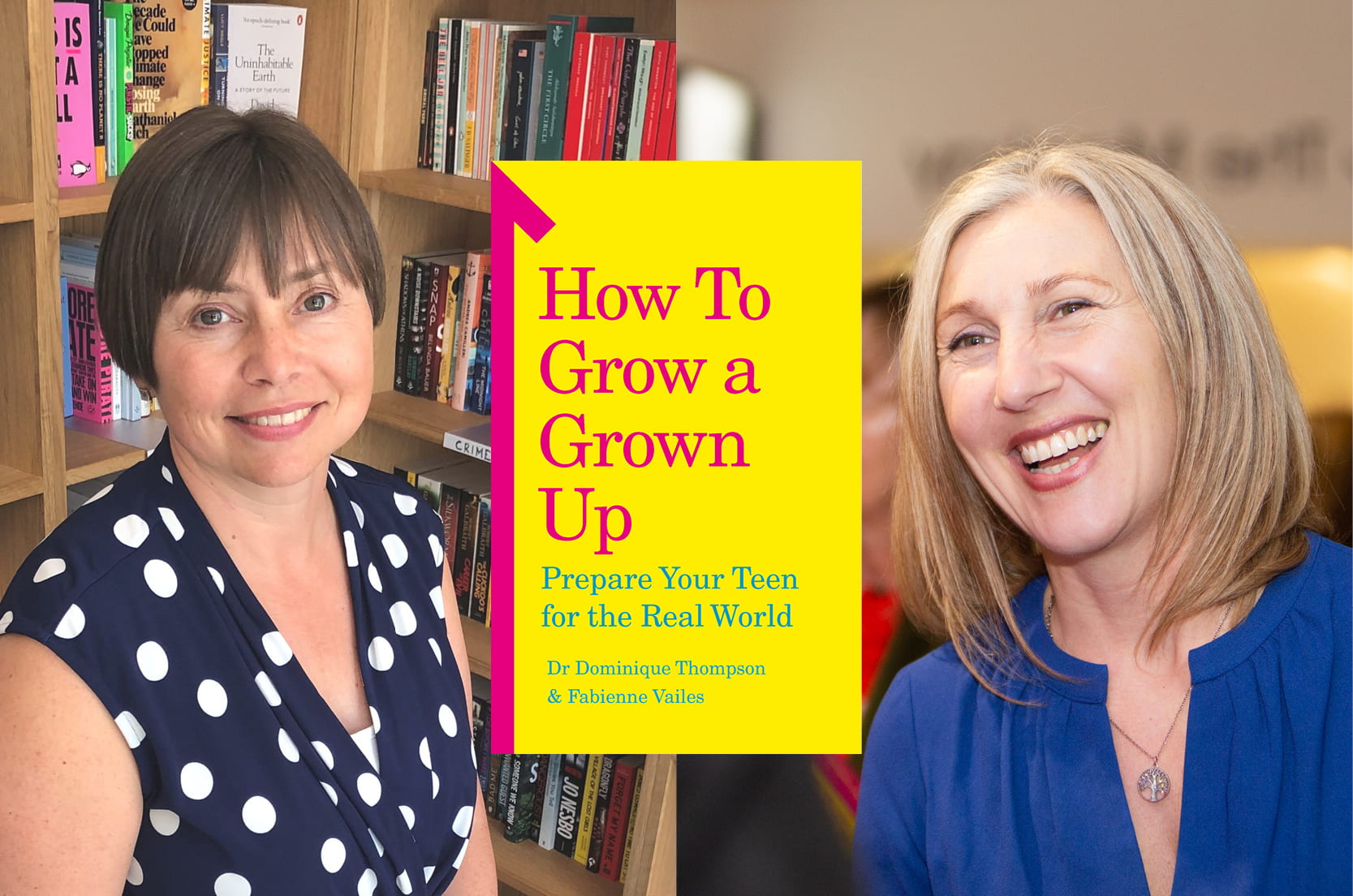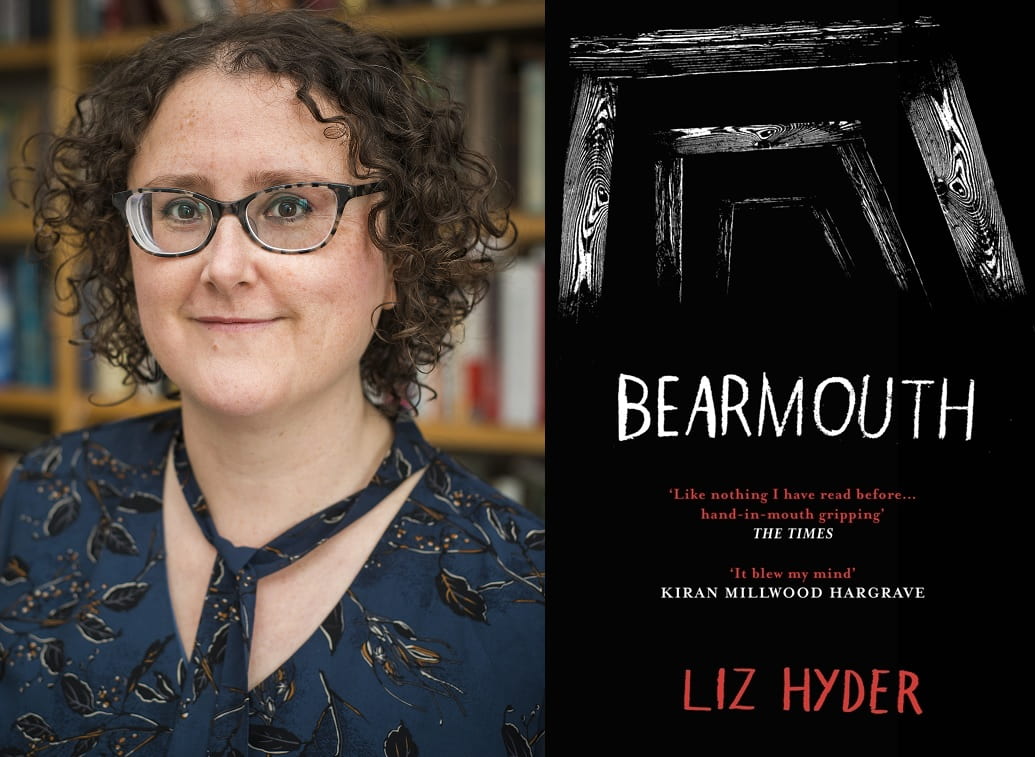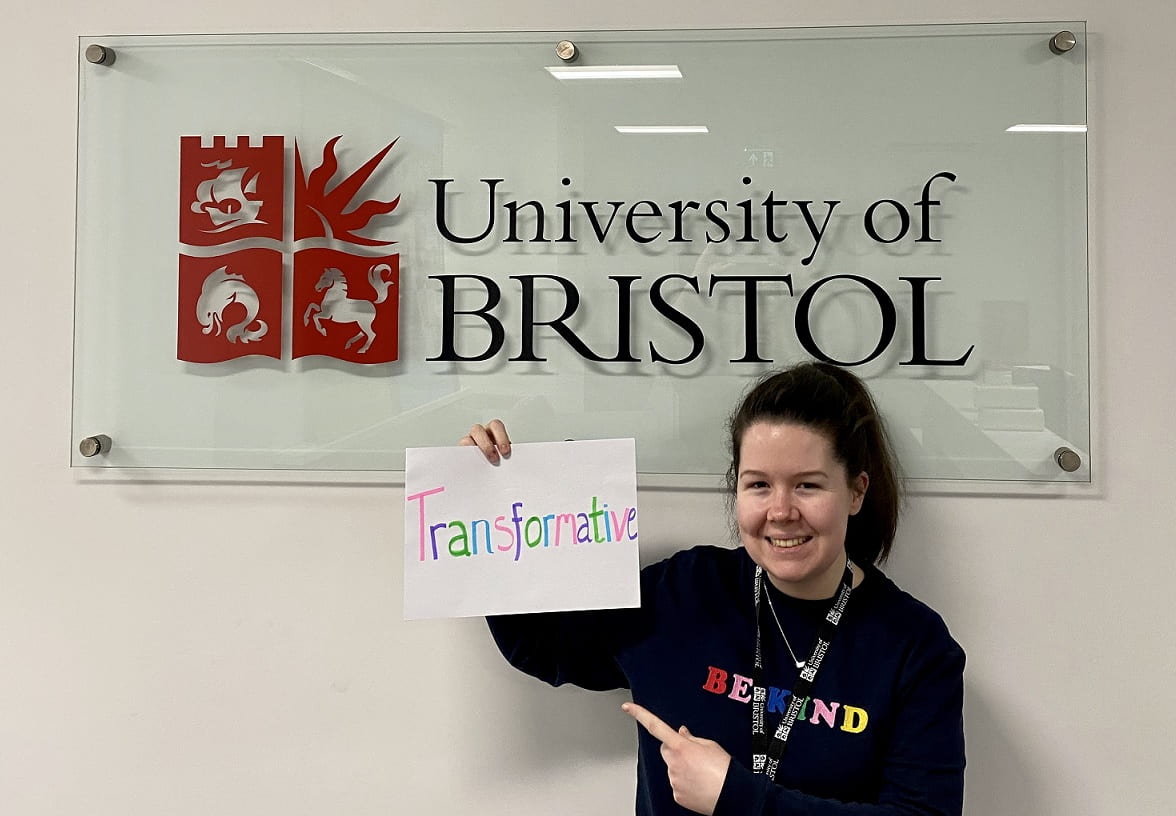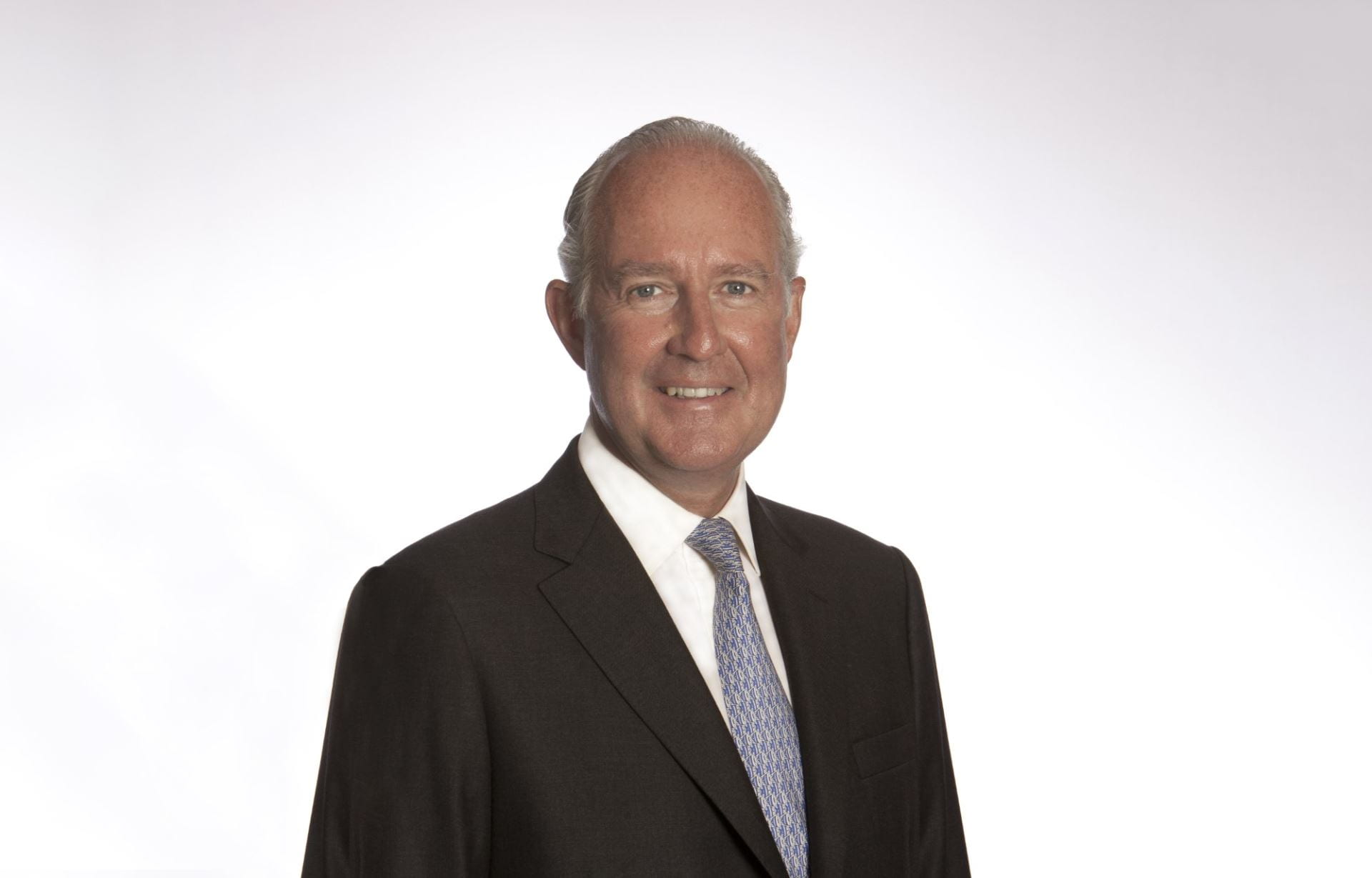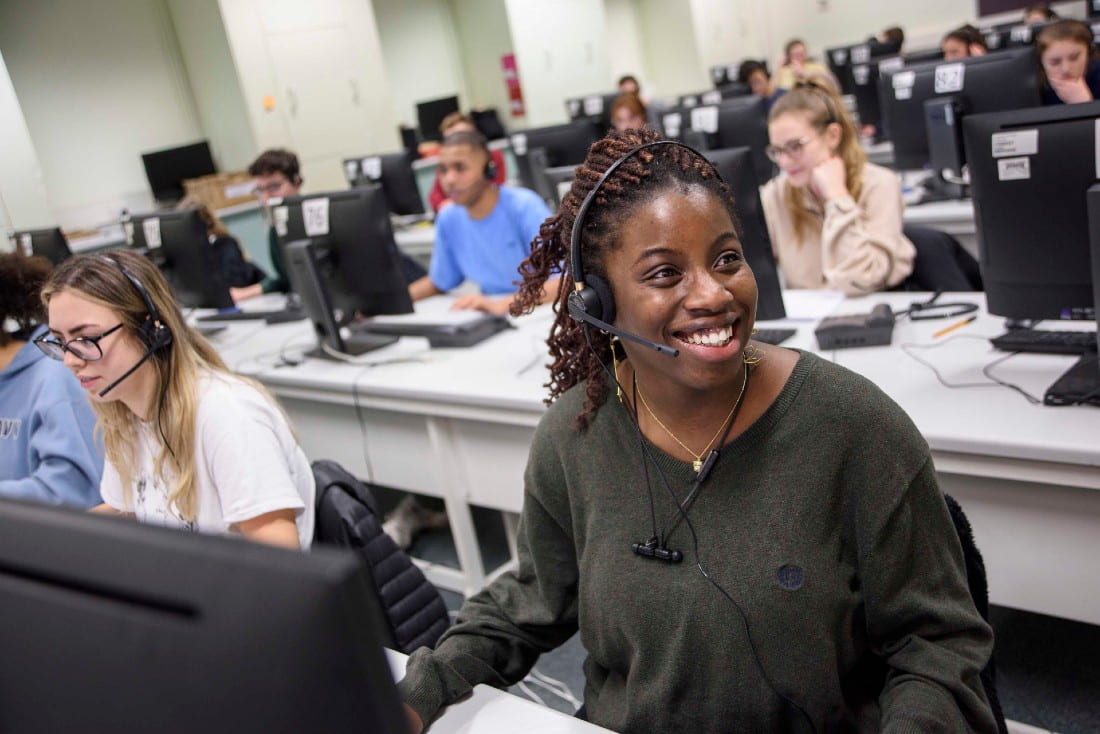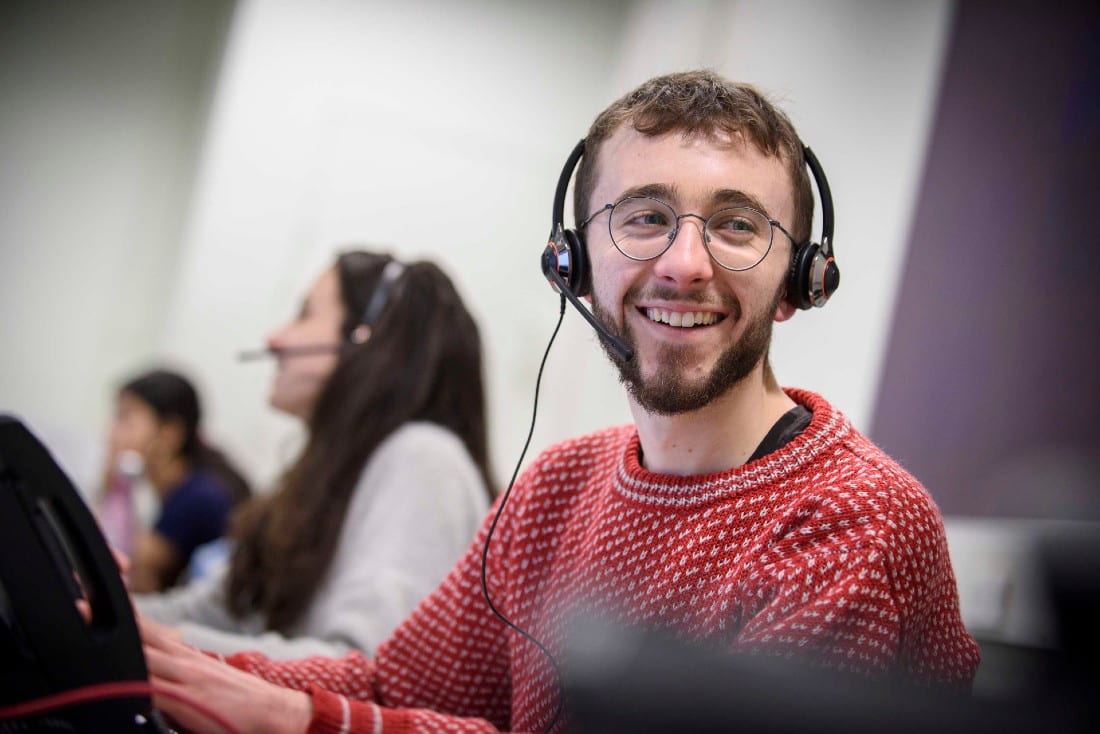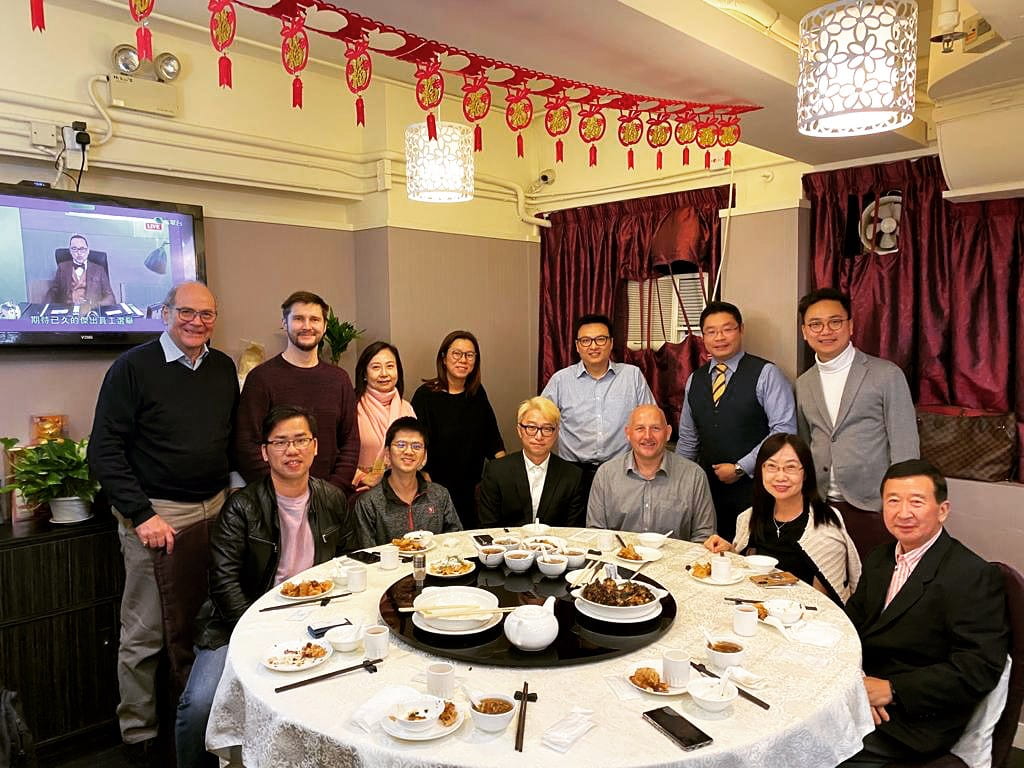Graduation at Bristol is one of the highlights of the University’s year: it’s when we celebrate the achievements of students and the support of their friends and family, and we welcome thousands of new graduates to the Bristol alumni community.
This year, the drizzly February weather didn’t dampen the atmosphere at the Wills Memorial Building as postgraduate graduands prepared to cross the stage and reunite with their friends.
We set out to meet some of our newest #BristolGrads, and hear about their time at Bristol, their passions, and their plans for the future.
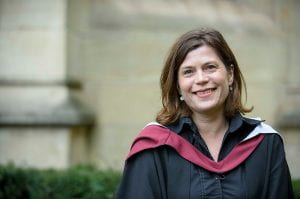 Michelle Windle, MSc Strategy, Change and Leadership
Michelle Windle, MSc Strategy, Change and Leadership
I worked part time during the two years of my MSc, but to be honest, as the chief executive of a charity, it was more like a full time job. I found the days I was studying or attending seminars were almost like a holiday: I loved the intellectual stimulation, the chance to explore different threads, and studying alongside an inspiring cohort of people from different sectors and backgrounds.
My dissertation was challenging: my first degree was in History, so adapting to science research methodology was tough. I looked at collaboration within the third sector: how leadership across boundaries can enable charities to work together. My case study was a consortium of Bristol-based charities that my organisation was a part of, which worked together to tackle sexual abuse, and I explored why this consortium worked, when others have failed.
What next? I’m hoping to move into consultancy, particularly for charities going into consortia together: I’d like to apply what I’ve learnt in my MSc and my professional experience to facilitate and coach organisations collaborating.
Leila Matavel, MSc Robotics 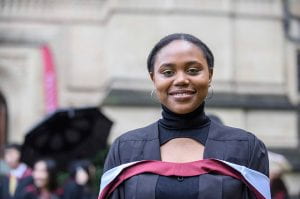
What I loved about Bristol was the diversity, the friendships, the clubs and the beautiful views!
The classes and the lecturers were very, very good too. I feel like everything I learnt here was relevant to my career and I’m now I’m actually working in robotics.
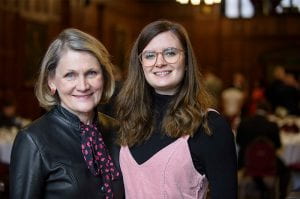 Lesley Silvester, Doctor of Laws Honoris Causa, and Dr Hayley Ellis (BSc 2014, Cellular and Molecular Medicine, PhD 2018)
Lesley Silvester, Doctor of Laws Honoris Causa, and Dr Hayley Ellis (BSc 2014, Cellular and Molecular Medicine, PhD 2018)
Lesley: I met Hayley with Dr Kathreena Kurian (head of the Brain Tumour Research Centre and Hayley’s PhD supervisor) before she had even finished her undergraduate degree at Bristol. What was really interesting was that Hayley had already published an important literature review at that point. I thought she was just so impressive, there was a really nice connection there.
Hayley: I would never have been able to continue my studies at Bristol without Lesley and Terry’s financial support. In my PhD research I was tracing genetic mutations through recurrent brain tumours, so when the same patient comes back and they have another sample taken, we could see the potential impact of different drugs.
Lesley: I feel privileged to have been able to support Hayley’s PhD. One of the most special things was when a copy of her PhD arrived, and it was dedicated to Terry and I – we were really gobsmacked!
Hayley: I’m so happy to be here to celebrate Lesley today as she receives her honorary degree.
Jasmeet Khalsa, MSc Advanced Computing, Machine Learning, Data Mining and High Performance Computing 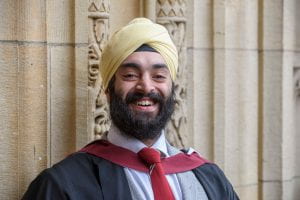
Since I finished my MSc, I’ve been living and working in Germany. I didn’t really know too much German beforehand, but I’ve found it really easy to integrate. In terms of what I’m doing there, it’s pretty similar to what I did my thesis on here in Bristol, so that’s great – it’s an area I’m really passionate about.
My course was intense: I needed a strong work ethic during my time here. But there were so many highlights of my year: the music scene in Bristol is great, and so are the bars, museums and restaurants. I particularly loved spending summer days down by the harbourside, ideally with a pint of West Country cider!
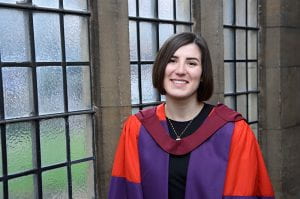 Venexia Walker, PhD Medicine
Venexia Walker, PhD Medicine
I submitted my PhD last year and moved into a post-doctoral role here at Bristol. Right now I’m on a one year placement at the University of Pennsylvania in Philadelphia: there’s a key dataset for my research which can only be used within the United States.
My work looks at disease progression. I’m using a statistical method called Mendelian randomisation to explore how, once someone has a disease, we can prevent progression. Lots of studies focus on the period before disease, looking at risk factors or preventative medication. For those sorts of studies, you can use general population data, but the statistical work becomes more complicated when we’re looking at disease within an individual.
My PhD at Bristol was funded by Roger and Kate Holmes, two donors who have given generously to research into Alzheimer’s Disease at Bristol. I met them a few times during my PhD; having the chance to talk to people outside of academia who were really interested and invested in my work was very meaningful for me.
Rujie Sun, PhD Advanced Materials. 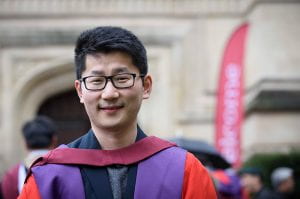
I really enjoyed the five years that I spent in Bristol. It’s such a nice city to live in! The environment is great, there are so many beautiful buildings in the city and around the University – like the Wills Memorial Building!
Now that I’ve graduated, I plan to stay in academia. I’m already doing some postdoctoral research in London.
 Sulagna Ghosal, MSc Management (Marketing)
Sulagna Ghosal, MSc Management (Marketing)
I’m from Kolkata, and I came to Bristol initially because of its strong reputation among employers. My year here has gone so quickly. As an international student, it can be a steep learning curve to understand the academic system here: the assignments and assessments, for example, are quite different to in the Indian system. It almost felt that I’d finally got the hang of it, and then the year was over!
A highlight of my time here has been the friends I’ve made on my course. We’ve shared lots of experiences together. I’m heading back to India next month, and I hope that I might move into a PhD programme.
Alexander Palmer-Walsh, PhD Aerospace Engineering 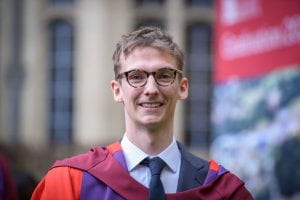
My time at Bristol was definitely made by the people I met here and the things that I’ve learned along the way.
I know that working on a PhD can be quite an independent process but the fact that, here at Bristol, you can be in an office with lots of people going through the same thing really helps. You can chat to people, bounce ideas around and, to be honest, everyone just gets behind you and are really willing to help you out.
Doing a PhD can be a bit of a rollercoaster so being able to persevere through the tough bits and having people there to talk to is really useful.
For anyone starting at Bristol this year, I’d say to make the most of your time here and the community around you. If you feel like you’re getting into a rut and closing in on yourself, know that there’s so many people here to support you and make sure you utilise that.

